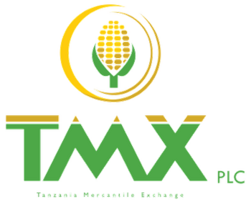Tanzania has crossed a major milestone in its sesame trade, recording over 200,000 tonnes of sesame traded through the Tanzania Mercantile Exchange (TMX), the state-backed digital commodity auction platform. The achievement was announced in Dar es Salaam by Mahama Kadikilo, the Business Operations Officer of TMX, who said the platform is transforming the way agricultural commodities are traded in the country.
Kadikilo explained that TMX was created to modernise Tanzania’s agricultural market system, address inefficiencies in traditional trading, and bring transparency to pricing. For years, smallholder farmers in sesame-producing areas have faced challenges such as unclear market prices and exploitative middlemen, which reduced their earnings despite high global demand for sesame seeds. TMX has stepped in to solve these problems by introducing a professional auction model that allows competitive bidding and fair price discovery for both farmers and buyers.
Through TMX’s digital infrastructure, licensed buyers can participate in auctions online, no matter their location. This gives traders instant access to real-time market data, price trends, and commodity volumes. According to Kadikilo, this system ensures that farmers in remote areas have the same market opportunities as those in bigger towns, bridging regional trading gaps and giving smallholder producers more bargaining power.
Among the leading sesame-producing regions, Lindi Region emerged as the top contributor, supplying about 74,000 tonnes of the total volume traded so far. Other contributing regions include Mtwara, Ruvuma, and Morogoro, which have also benefited from the streamlined trading process. The high volumes from these areas underline the importance of sesame as a cash crop for Tanzania’s rural economy.
Kadikilo said TMX is doing more than just improving prices; it is also strengthening Tanzania’s agricultural value chain. By fostering trust between producers, traders, and buyers, the platform is helping to build a fairer and more competitive market environment. This transparency also encourages more farmers to register with TMX, increasing the number of participants in the formal trading system.
The sesame traded on TMX is playing a key role in boosting Tanzania’s position in the global oilseed market. Countries in Asia and the Middle East, especially China, Japan, and the United Arab Emirates, have shown strong demand for high-quality sesame seeds, making Tanzania an attractive supplier. The TMX platform has made it easier for exporters to connect with international buyers, reduce transaction delays, and meet export standards.
Industry experts say that TMX’s approach could serve as a model for other African nations looking to digitise and modernise agricultural commodity trading. The platform’s real-time auction system, combined with transparent pricing, eliminates the secrecy that often surrounds agricultural sales. This makes it harder for middlemen to manipulate prices at the expense of farmers.
Kadikilo noted that TMX has long-term plans to expand its commodity portfolio beyond sesame. Future targets include maize, cashew nuts, coffee, and other export crops. The exchange also aims to integrate more smallholder farmers into the platform and adopt fully digital trade documentation. This will cut down transaction costs, reduce paperwork delays, and ensure that payments to farmers are processed more quickly.
With Tanzania’s agricultural sector being a key driver of the economy, experts believe that platforms like TMX will be critical in unlocking more value for farmers, attracting investment into rural areas, and increasing export earnings. The record 200,000-tonne sesame trade milestone is being seen as both an achievement and a sign of greater potential ahead.
